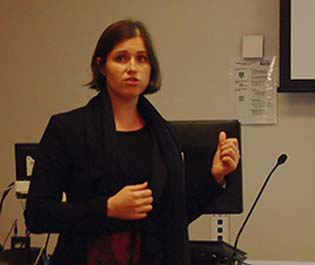
AUCKLAND (Asia Pacific Report/Pacific Media Watch): Children are often overlooked among the many millions around the globe who are refugees or those who are seeking asylum.
Even still— many people are unware that these children are being held in detention for preventable reasons such as failing to provide necessary documentation.
An Asia Pacific Report article by postgraduate student journalist Jihee Junn looked at this issue as part of the Asia-Pacific Journalism Studies paper at Auckland University of Technology.
Junn's reportage said the issue of child immigration detention was most prevalent in South-East Asian nations.
It reported that in Indonesia alone more than 800 asylum seekers had been identified as children.
In Malaysia, close to 300 children were a part of 12,000 asylum seekers seeking refuge in the country.
The article included an interview with 26-year old Habib from Afghanistan. Now settled in Australia, he recalled his experience in an Indonesian detention centre.
“I think detention of children in Indonesia is not the right thing. It was very overcrowded and it was not actually the right place for them to be," he told Asia Pacific Report journalist Jihee Junn.
“We had to bear all kinds of arguments and conflicts because people were sitting together having discussions … I was feeling very sorry for families. For me, I could tolerate some of the arguments, but for the families I think it was very difficult.”
Other articles
In other articles in the latest batch of Asia-Pacific reports, Ami Dhabuwala reports on the climate change protests at Auckland's flagship branch of ASB, Anuja Nadkarni writes about "taking the sting" out of zika in Fiji, and Kendall Hutt sheds some insights into strategies for global climate change journalism.
The most popular story in the batch is an expose by Dominic Pink about the cruelty behind the scenes involved in the elephant ride tourism business in Cambodia, Thailand and other countries.
He reports on the hidden brutality involved that may shock many unsuspecting tourists, quoting a campaigner as saying: "“The problem is that a lot of the cruelty is hidden and goes on behind the scenes.”
Asia-Pacific Journalism Studies, the only course of its kind, is taught by the director of the Pacific Media Centre, Professor David Robie, as part of AUT's postgraduate programmes.
Asia Pacific Report is the course publication and was launched in January this year, replacing Pacific Scoop.
This work is licensed under a Creative Commons Attribution-NonCommercial 3




